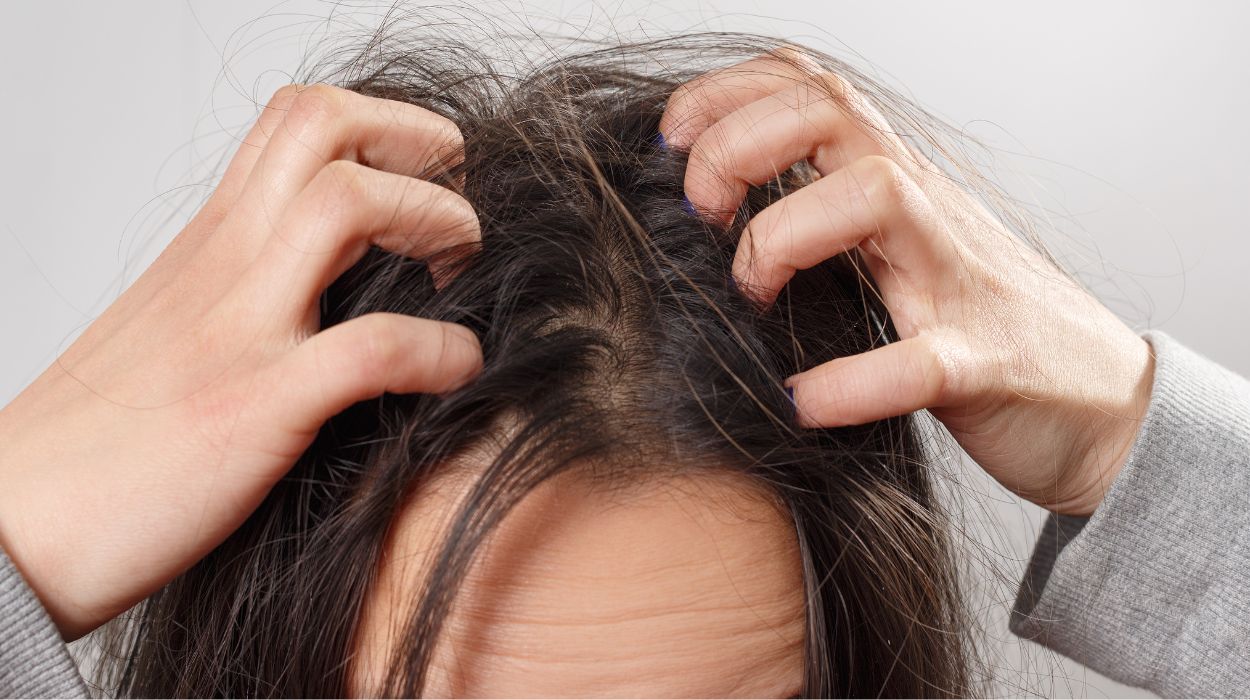 Expert's opinion
Expert's opinion
Expert's opinion
The article is a subjective view on this topic written by writers specializing in medical writing.
It may reflect on a personal journey surrounding struggles with an illness or medical condition, involve product comparisons, diet considerations, or other health-related opinions.
Although the view is entirely that of the writer, it is based on academic experiences and scientific research they have conducted; it is fact-checked by a team of degreed medical experts, and validated by sources attached to the article.
The numbers in parenthesis (1,2,3) will take you to clickable links to related scientific papers.
Aloe Vera For Hair 2024: Benefits, Risks & How To Use

Throughout history, many different cultures have used the aloe vera plant for natural hair. This is because aloe vera can have powerful antibacterial and anti-inflammatory effects.
But did you know that the advantages of the aloe vera plant go far beyond sunburn therapy and skin care? According to recent reports, this rejuvenating and moisturizing herb can help nourish unhealthy hair and restore its luster, leading to an increase in its popularity.
Preliminary research has been done to determine whether aloe vera properties boost hair strength. This research has shown that aloe vera can encourage the growth of healthy, plentiful hair.
This article will look at the numerous potential benefits of the aloe vera plant for hair loss inclusive of other tips for hair growth.
Is Aloe Vera Good For Hair?
Yes, aloe vera can help maintain healthy hair. Aloe vera encourages hair development, soothes the scalp, and decreases dandruff thanks to its high vitamin, mineral, and enzyme content. When you apply aloe vera to your hair, it becomes smoother, more manageable, and more nourished. It is commonly used in hair care products due to its ability to heal and nourish dry, damaged, or frizzy hair.
Several benefits of aloe vera on hair include:
- Reduces microbial infections
- Protects hair from the sun’s UV rays
- Restores pH balance on your scalp
- Cleanses oily hair
- Reduces scalp inflammation
- Soothes itchy scalp
- Stimulates healthy hair growth
- Adds soft texture to the hair
Benefits Of Aloe Vera On Hair
Did you know that aloe vera may be used in various ways to improve your hair’s health? Because of its hydrating and anti-inflammatory properties,[1] aloe vera for hair regrowth can help you manage dry hair, scalp, and dandruff.
The cosmetics industry has welcomed aloe vera because of its beneficial effects on hair and skin. Continue reading to learn more.
Reduces Microbial Infections
Aloe vera’s antibacterial, antifungal, and antiseptic properties have earned it widespread praise. It can improve the health of your scalp and hair by managing scalp infections[2] and dandruff. Aloe vera can also alleviate the itch and discomfort caused by scalp illnesses.
Protects Hair From The Sun’s UV Rays
Hair strands exposed to the sun over time can become brittle, rough, discolored, or dull. However, studies have shown that aloe vera juice for hair growth makes the hair less susceptible to UV radiation and damage.
Restores pH Balance On Your Scalp
Aloe vera’s pH levels are within the same range as your scalp and hair. Consistently applying aloe vera to your scalp and hair can therefore assist in restoring the natural pH balance that may have been disturbed by other factors, supporting healthier, more balanced hair.
Cleanses Oily Hair
There are numerous products on the market that claim to thoroughly clean oily or greasy hair. Unfortunately, many of these things will likely dry out your hair or cause it to break.
Aloe vera used on the hair, on the other hand, is not like this. Because of its antibacterial properties, it washes your hair of excess oil without hurting the hair itself. It’s gentle enough to use daily without damaging the health of your hair.
Reduces Scalp Inflammation
There is strong evidence that the fatty acids[3] in raw aloe vera contributes to the speedy recovery of any damaged scalp tissues by reducing inflammation, bruising, and redness.
Soothes Itchy Scalp

Aloe vera’s anti-inflammatory and antibacterial qualities make it an effective treatment for scalp irritation symptoms. Because of its antifungal qualities,[4] it can also be used to treat scalp problems such as dermatitis.
Stimulates Healthy Hair Growth
The ability of topically applied aloe vera to improve blood circulation to the scalp is beneficial to hair follicle health. The oxygen, vitamins, and minerals in your blood will be able to reach more of your hair follicles, which is essential for hair development. Additionally, minerals like zinc and copper, as well as proteolytic enzymes (i.e., enzymes that break down protein), are abundant and play an important role in reactivating dormant cells in your hair follicles and boosting faster hair regeneration.
Adds Soft Texture To The Hair
Aloe vera is a great option if you’re seeking a natural way to condition your hair. The presence of antioxidants like vitamins C and E[5] will ensure that your hair retains its beauty and health throughout time. This manifests in hair that is silky, vibrant, and in good health.
How To Use Aloe Vera For Hair Growth
There are numerous ways to use aloe vera gel for hair, and we have some simple home remedies for you. With our selection of three incredible aloe-based hair products, we guarantee you’ll never have to worry about thinning hair again.
Aloe Vera Hair Mask
The simplest approach to incorporating aloe into your hair care routine is using aloe vera for a hair mask. Making an aloe hair mask involves applying fresh aloe vera gel to your hair or utilizing a prepared hair mask that has aloe as an active ingredient.
According to research,[6] applying aloe vera gel to the scalp can help with various scalp ailments such as dandruff, seborrheic dermatitis, and even hair loss.
After application, allow the aloe vera mixture to absorb on your scalp for a few minutes. Following that, the scalp must be cleansed. Combining aloe vera and coconut oil yields a nutrient-rich hair mask.
Aloe Vera As A Leave-In Conditioner
A half cup of aloe vera gel and about ten drops of lavender oil[7] combined yield a natural leave-in conditioner that may be used on your hair. Combine all of the ingredients to make a paste, and then store it in a spray bottle for easy application.
This is a great method to rehydrate your hair and help it recover from any damage it may have incurred. Remember to give it a good shake before each use.
Aloe Vera As Overnight Spray
To use aloe vera for hair thickening, use it as an overnight spray. Combine 1/4 cup ginger juice with 1/2 cup aloe gel and shake thoroughly. After spraying your entire head, massage your scalp for twenty minutes to increase blood flow before sleeping. Rinse it off the next morning, and you’ll have silky, lustrous hair. Perform this frequently before retiring for the night.
Aloe Vera As Shampoo
If you use aloe while you’re in the shower, you may find that you need less shampoo or even none at all. If you discover that using pure aloe vera[8] on its own does not leave your hair and skin feeling as clean as you would want, you can try mixing it with your regular shampoo in order to make it lather.
Aloe Vera Side Effects
Most people agree that aloe vera is quite gentle and will not irritate most skin types. However, aloe vera might induce allergic reactions in certain people. If it is your first time using aloe vera, always perform a skin test first.
To do this and to ensure there are no adverse effects,[9] test a small amount on your scalp and hair.
Other Tips To Help Hair Growth
In the following section, you will learn a few additional tips to promote hair growth using aloe vera for hair growth home remedies:
- Keep it moisturized.
- Avoid restrictive dieting.
- Avoid tight hairstyles.
- Check your protein intake.
- Detangle properly.
- Oil your tresses regularly with essential oils.
- Keep the scalp clean.
- Massage your scalp.
- Consume antioxidants.
- Trim regularly.
- Avoid heat to prevent hair breakage.
- Try a do-it-yourself coffee conditioner.
The Bottom Line
Aloe vera’s positive effects on skin, nails, and hair, are well-documented, thanks to the plant’s high concentrations of vitamins A, C, and E, as well as numerous vital minerals and enzymes. Hair loss, thinning hair, and dandruff are just a few of the many hair issues that aloe vera can help with.
Applying aloe vera to your scalp and hair on a daily basis can reduce environmental damage and keep your hair nourished. Ultimately, the use of aloe vera has been associated with hair health.
+ 9 sources
Health Canal avoids using tertiary references. We have strict sourcing guidelines and rely on peer-reviewed studies, academic researches from medical associations and institutions. To ensure the accuracy of articles in Health Canal, you can read more about the editorial process here
- Farzadinia, P., Jofreh, N., Khatamsaz, S., Movahed, A., Akbarzadeh, S., Mohammadi, M. and Bargahi, A. (2016). Anti-inflammatory and Wound Healing Activities of Aloe vera, Honey and Milk Ointment on Second-Degree Burns in Rats. The International Journal of Lower Extremity Wounds, [online] 15(3), pp.241–247. doi:https://doi.org/10.1177/1534734616645031.
- Trueb, R., Henry, J., Davis, M. and Schwartz, J. (2018). Scalp condition impacts hair growth and retention via oxidative stress. International Journal of Trichology, [online] 10(6), p.262. doi:https://doi.org/10.4103/ijt.ijt_57_18.
- Añibarro-Ortega, Pinela, Barros, Ćirić, Silva, Coelho, Mocan, Calhelha, Soković, Coimbra and Ferreira (2019). Compositional Features and Bioactive Properties of Aloe vera Leaf (Fillet, Mucilage, and Rind) and Flower. Antioxidants, [online] 8(10), p.444. doi:https://doi.org/10.3390/antiox8100444.
- Saniasiay, J., Salim, R., Mohamad, I. and Harun, A. (2017). Antifungal Effect of Malaysian Aloe vera Leaf Extract on Selected Fungal Species of Pathogenic Otomycosis Species in In Vitro Culture Medium. Oman Medical Journal, [online] 32(1), pp.41–46. doi:https://doi.org/10.5001/omj.2017.08.
- Almohanna, H.M., Ahmed, A.A., Tsatalis, J.P. and Tosti, A. (2018). The Role of Vitamins and Minerals in Hair Loss: A Review. Dermatology and Therapy, [online] 9(1), pp.51–70. doi:https://doi.org/10.1007/s13555-018-0278-6.
- Seborrheic Dermatitis and Dandruff: A Comprehensive Review. (2015). Journal of Clinical and Investigative Dermatology, [online] 3(2). doi:https://doi.org/10.13188/2373-1044.1000019.
- Lee, B.H., Lee, J.S. and Kim, Y.C. (2016). Hair Growth-Promoting Effects of Lavender Oil in C57BL/6 Mice. Toxicological Research, [online] 32(2), pp.103–108. doi:https://doi.org/10.5487/tr.2016.32.2.103.
- Sánchez, M., González-Burgos, E., Iglesias, I. and Gómez-Serranillos, M.P. (2020). Pharmacological Update Properties of Aloe Vera and its Major Active Constituents. Molecules, [online] 25(6), p.1324. doi:https://doi.org/10.3390/molecules25061324.
- Guo, X. and Mei, N. (2016). Aloe vera: A review of toxicity and adverse clinical effects. Journal of Environmental Science and Health, Part C, [online] 34(2), pp.77–96. doi:https://doi.org/10.1080/10590501.2016.1166826.



